October 31 – November 3, 2018, the students of the Faculty of Law at Polotsk State University became the participants of important political events and tried the roles of delegates from different countries that were members of world scale international organizations.
This became possible thanks to the simulation game “Model United Nations”. The United Nations in Belarus together with the Faculty of International Relations at Belarusian State University and the Belarusian Fund of Peace organized the game.
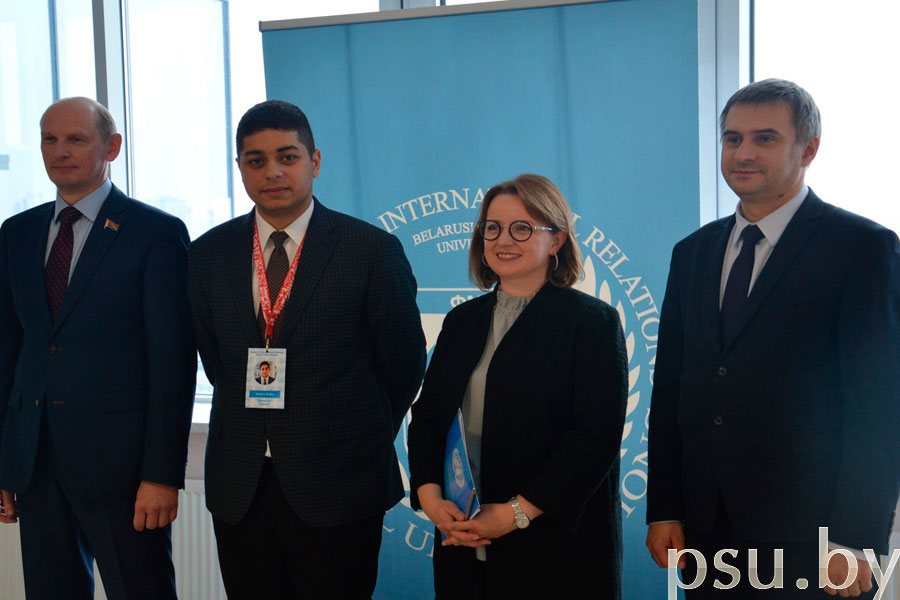
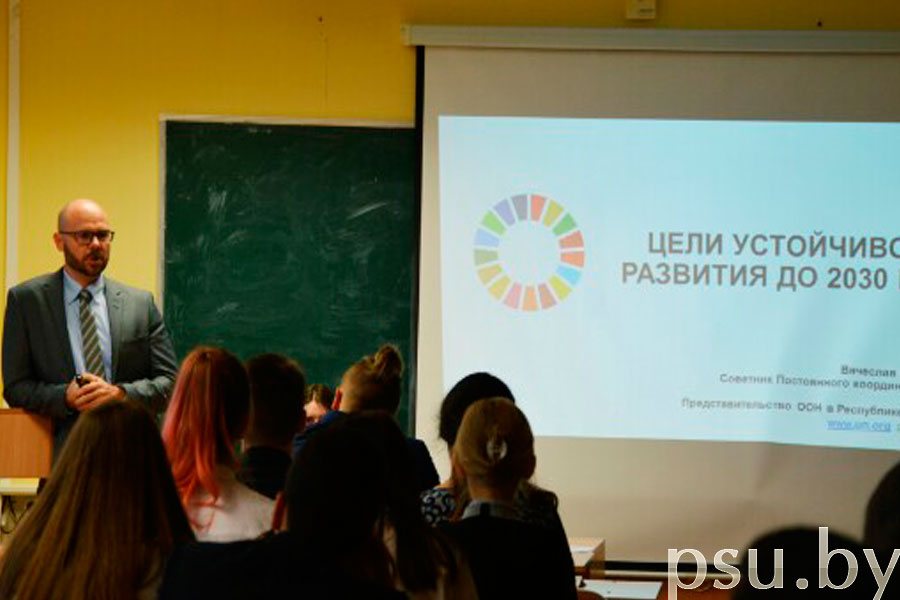
During the game, the participants gained experience in negotiating, searching for ways to resolve global problems and in decision-making based on the international principles of democracy.
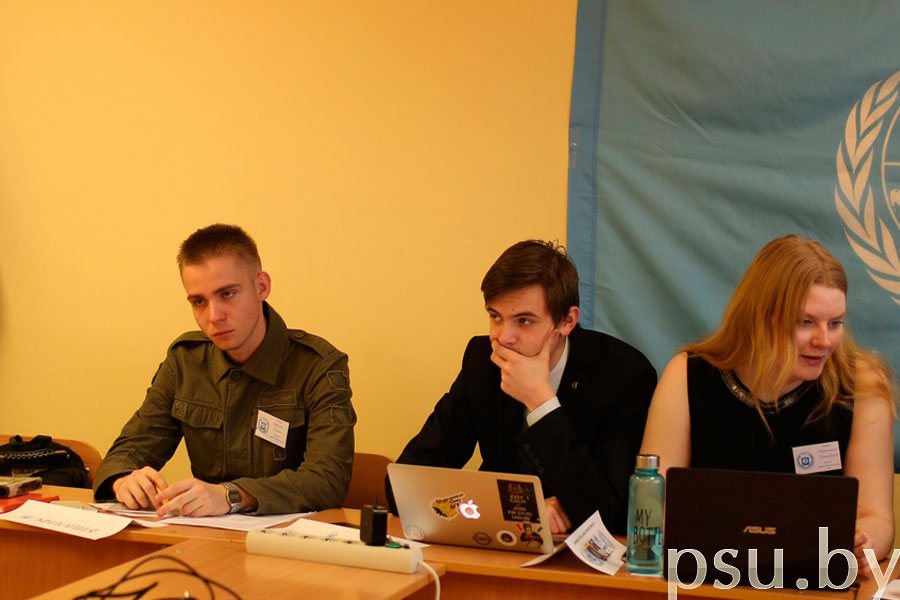
Yana Sapego and Diana Dangel were the members of the UN Economic and Social Council during the game. The council meetings were held in English. The economic consequences of human trafficking and the privacy law in the digital age were the topics under discussion.
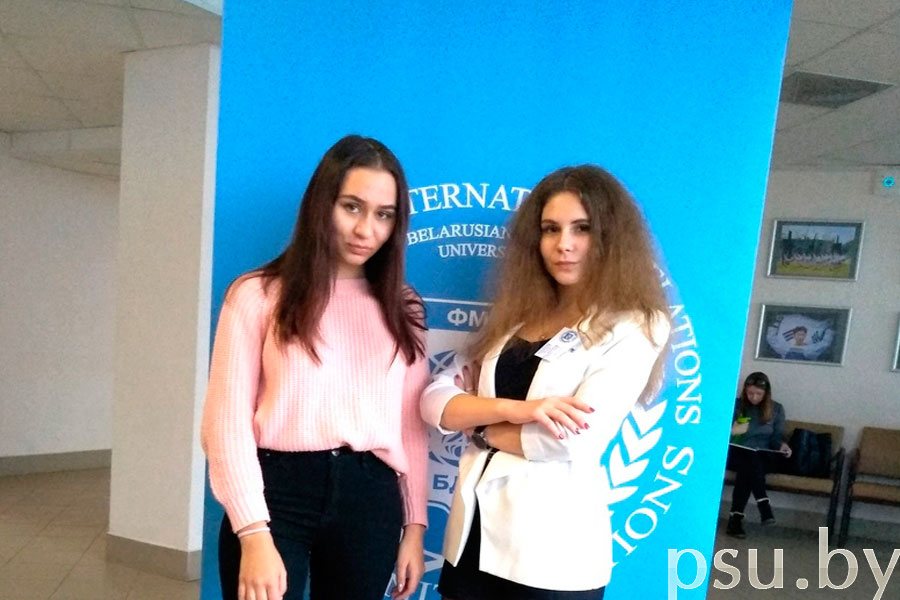
Freshman Daniil Artyomov participated in the meetings of a United Nations Security Council. They discussed the need to strengthen efforts on the way to the nuclear disarmament and the ways to resolve an armed conflict in Yemen.
Yana Sapego: “It was very interesting and inspiring. When you are involved in a political discussion in English, a motivation to improve and expand my horizons appears immediately. Besides, we made friends with the students from other universities and had fun together. So, there wasn’t a spare minute to have a rest.”
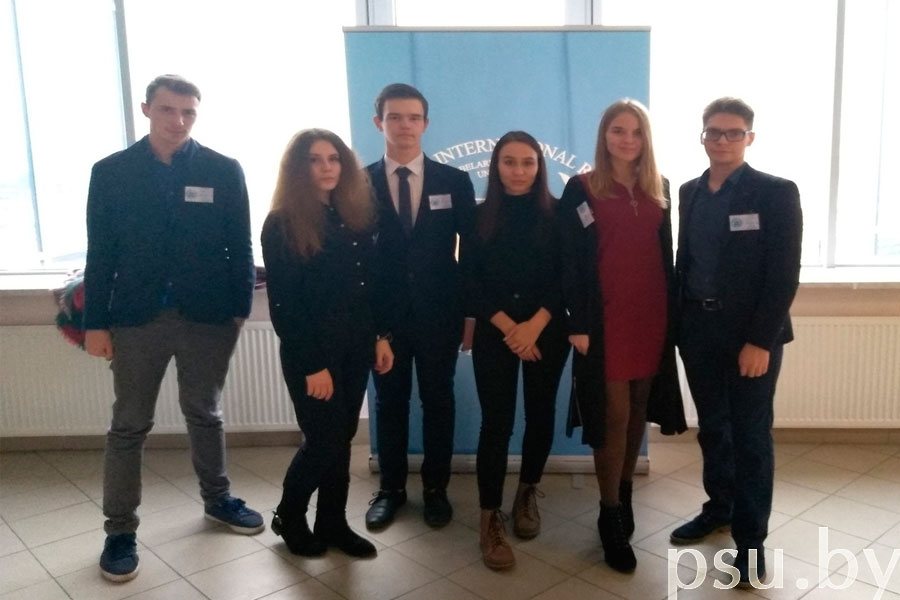
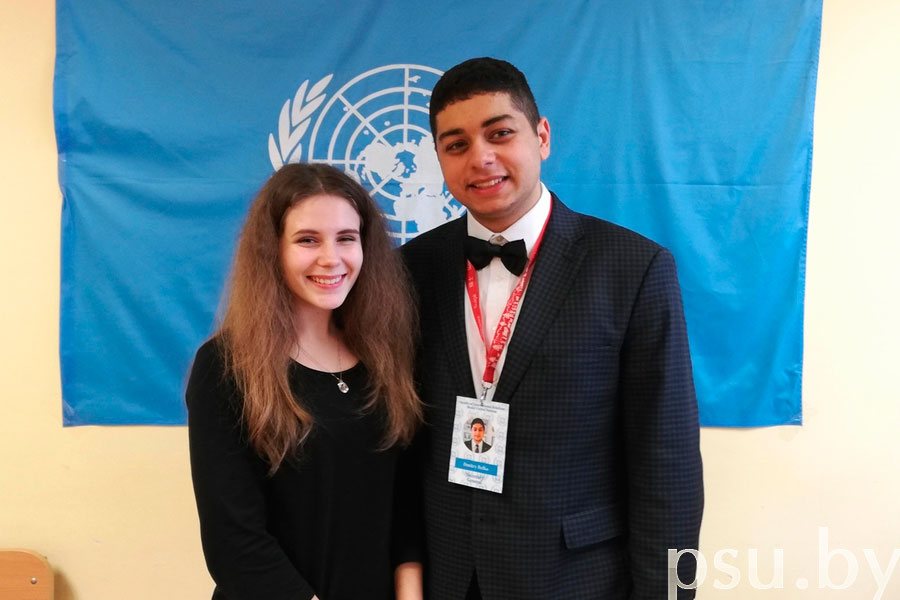
In total, around 110 undergraduate, graduate and postgraduate students tried the roles of Ministers of Foreign Affairs, diplomats and political scientist. The project “Model of UN” has been held at BSU for the 19th time. As a result of the game, the participants adopted resolutions, one of which concerned the UN Security Council reform. All the offers will be sent to the real headquarters of the United Nations.
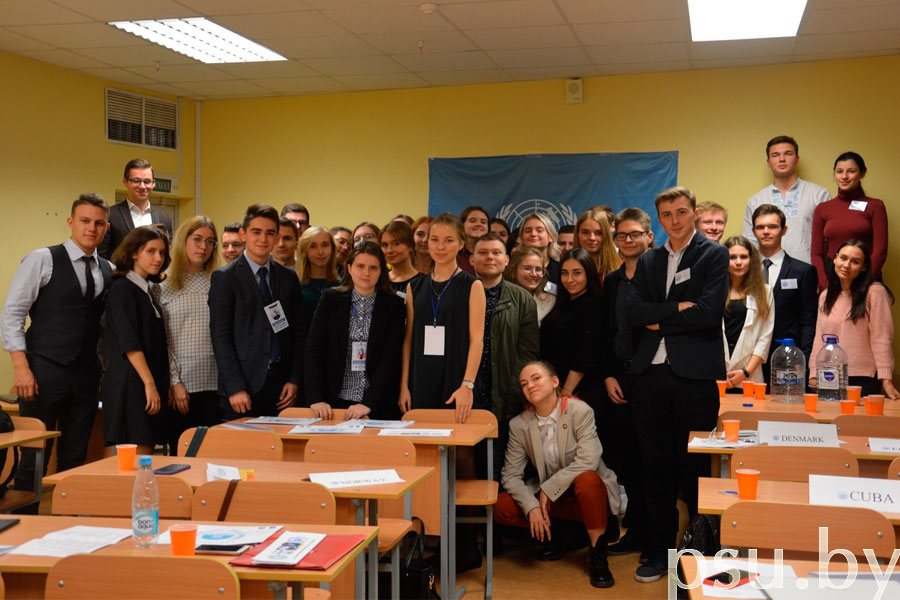
Department of Theory and History of State and Law